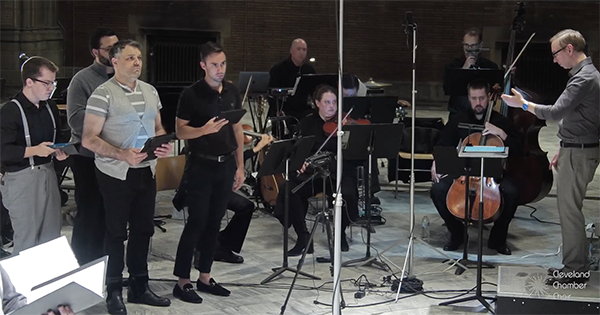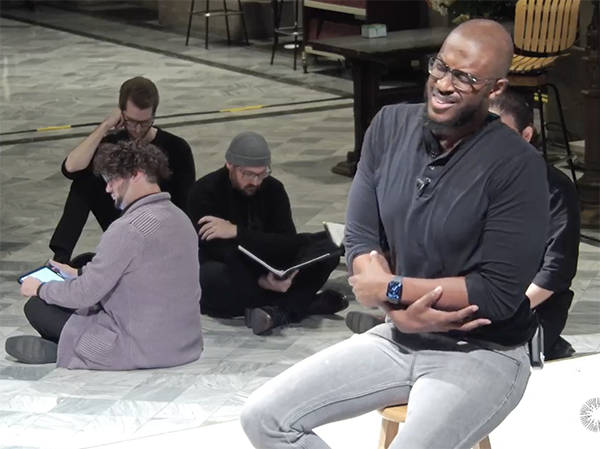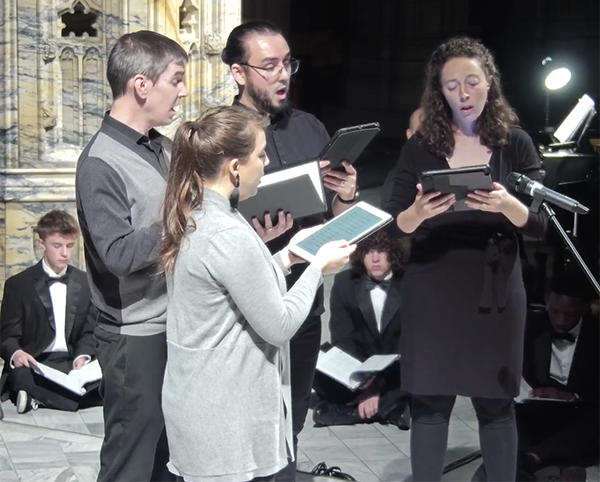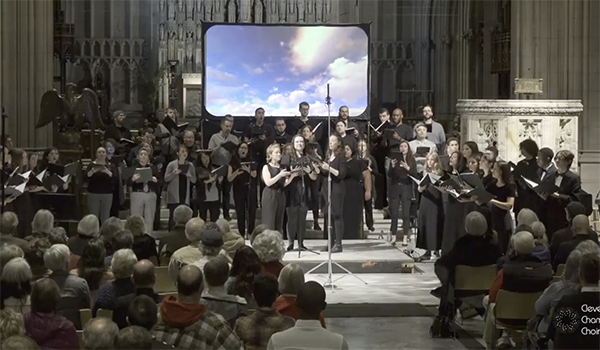by Daniel Hathaway
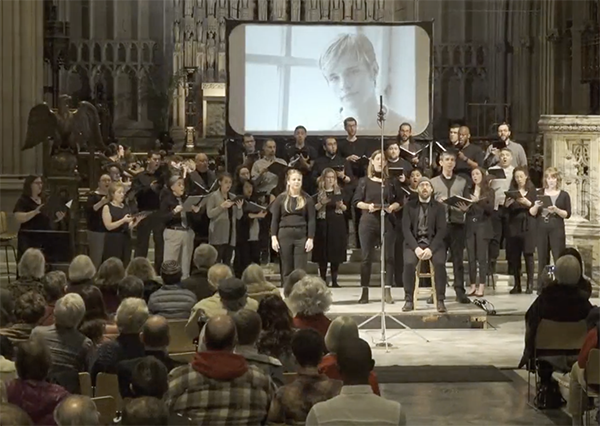
In 2023, some 40 organizations will have performed the nearly two-hour work, among them Gregory Ristow’s Cleveland Chamber Choir, who were joined by the Lakewood High School Symphonic Mixed Choir and an instrumental ensemble from the Local 4 Music Fund in an affecting Sunday afternoon concert at Trinity Cathedral on October 22. (An earlier performance was given the day before in Avon Lake).
Although Johann Sebastian Bach’s passion settings with their narration, reflective arias, and congregational hymns are an obvious model for the piece, Oberlin musicologist Charles Edward McGuire noted in his informative program notes that Bach’s is not the only musical style that Johnson emulates. “Other elements include the Broadway musical, Country & Western, the Blues, Jazz, Appalachian hymnody, and Gospel music.”
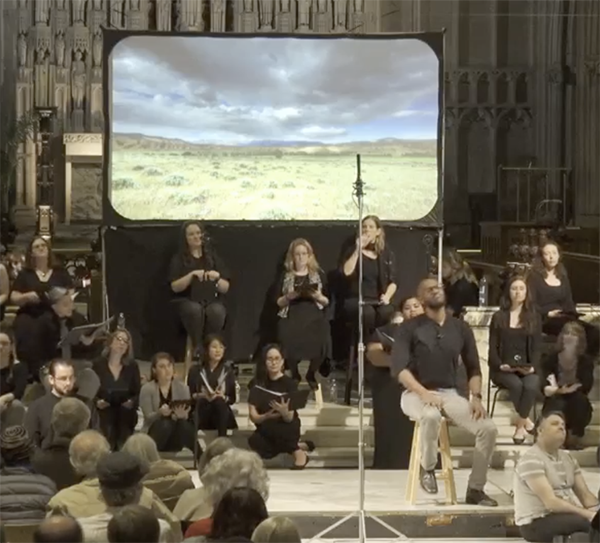
Gregory Ristow has been greatly moved by the work. In an interview with this publication, he said, “I still can’t just look through the score without getting choked up.”
No doubt many in the audience on Sunday afternoon were similarly engaged by a piece that connects on such different levels.
Introducing Matthew Shepard as if thumbing through someone’s scrapbook, Johnson makes much of the “ordinary boy” whose death made him extraordinary, a type of Everyman to whom we can all relate in some way.
On another level, there are unmistakable parallels between Matthew’s fate — his body beaten and tied to a fence — and Christ’s — scourged and nailed to a cross. Poetic imagery takes up where narrative leaves off: Christ’s body supported pietá-like by the wood of the “tree,” and Matthew’s cradled against the freezing prairie night in the arms of The Fence (an actual character touchingly sung by Jelani Watkins in Sunday’s performance). When Christ spends 40 days in the wilderness, angels comfort him. During Matthew’s long night on the lonesome prairie, the deer keep him company and sing him a lullaby.
The work may also invoke disturbing memories that have lain dormant since 1998. For this writer, who grew up in Topeka, Kansas and whose first job at the age of 14 was organist at the Episcopal Church only a few blocks away from Fred Phelps’ Westboro Baptist Church, images of the hateful vitriol he and his “congregation” of mostly relatives spewed at Matthew’s funeral in Laramie — and elsewhere — popped up with painful clarity.
Considering Matthew Shepard takes its time unfurling its message, and much of the music and text flows in and out like a dream sequence. As much a choreographer as a conductor, Ristow constantly rearranged his forces, pulling soloists or small groups out for special ensembles. The singing was beautiful, whatever style of music was featured at the moment. But Cleveland Chamber Choir’s tagline is “more than music,” and their programs show that they really mean it.
Photos from the live webcast.
Published on ClevelandClassical.com November 9, 2023
Click here for a printable copy of this article




